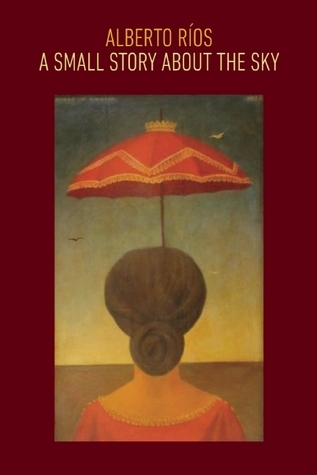
In his thirteenth book, Alberto Rios casts an intense desert light on the rich stories unfolding along the Mexico-US border. Peppered with Spanish and touches of magical realism, ordinary life and its simple props—morning showers, spilled birdseed, winter lemons—becomes an exploration of mortality and humanity, and the many possibilities of how lives might yet be lived. Mad Honey Made from magnificent rhododendron, poisonous rhododendron, Very difficult-to-pronounce rhododendron—whatever Rhododendron even is—I would have to look it up myself, This word sounding puffed up, peacocky with its Indianapolisly-long spelling, all those letters moving in and out. But the plant itself, the plant and the bees that find it: The bees see in its purple flower, first, a purple flower. They do not spell it. They do not live in fear of quizzes, Purple offering what it has to offer, unapologetic, without further Definition, purple irresistible to the artist's and to the bee's eye—Who can blame either one this first-grade impulse toward love? Purple, always wearing something low-cut . . . Alberto Rios is the Poet Laureate of Arizona and host of the PBS program Books & Co. He was a finalist for the National Book Award for his poetry volume The Smallest Muscle in the Human Body. He teaches at Arizona State University and lives in Chandler, Arizona.
Author

In 1952, Alberto Alvaro Ríos was born on the American side of the city of Nogales, Arizona, on the Mexican border. He received a Bachelor of Arts from the University of Arizona in 1974 and a MFA in Creative Writing from the same institution in 1979. He is the author of several collections of poetry, including Dangerous Shirt (Copper Canyon Press, 2009); The Theater of Night (2007); The Smallest Muscle in the Human Body (2002), which was nominated for the National Book Award; Teodora Luna's Two Kisses(1990); The Lime Orchard Woman (1988); Five Indiscretions (1985); and Whispering to Fool the Wind (1982), which won the 1981 Walt Whitman Award, selected by Donald Justice. Other books by Ríos include Capirotada: A Nogales Memoir (University of New Mexico Press, 1999), The Curtain of Trees: Stories (1999), Pig Cookies and Other Stories (1995), and The Iguana Killer: Twelve Stories of the Heart (1984), which won the Western States Book Award. Ríos' poetry has been set to music in a cantata by James DeMars called "Toto's Say," and on an EMI release, "Away from Home." He was also featured in the documentary Birthwrite: Growing Up Hispanic. His work has been included in more than ninety major national and international literary anthologies, including the Norton Anthology of Modern Poetry. "Alberto Ríos is a poet of reverie and magical perception," wrote the judges of the 2002 National Book Awards, "and of the threshold between this world and the world just beyond." He holds numerous awards, including six Pushcart Prizes in both poetry and fiction, the Arizona Governor's Arts Award and fellowships from the Guggenheim Foundation and the National Endowment for the Arts. Since 1994 he has been Regents Professor of English at Arizona State University, where he has taught since 1982. He lives in Chandler, Arizona.